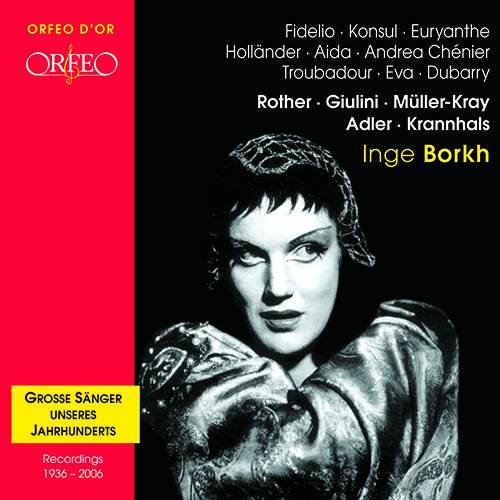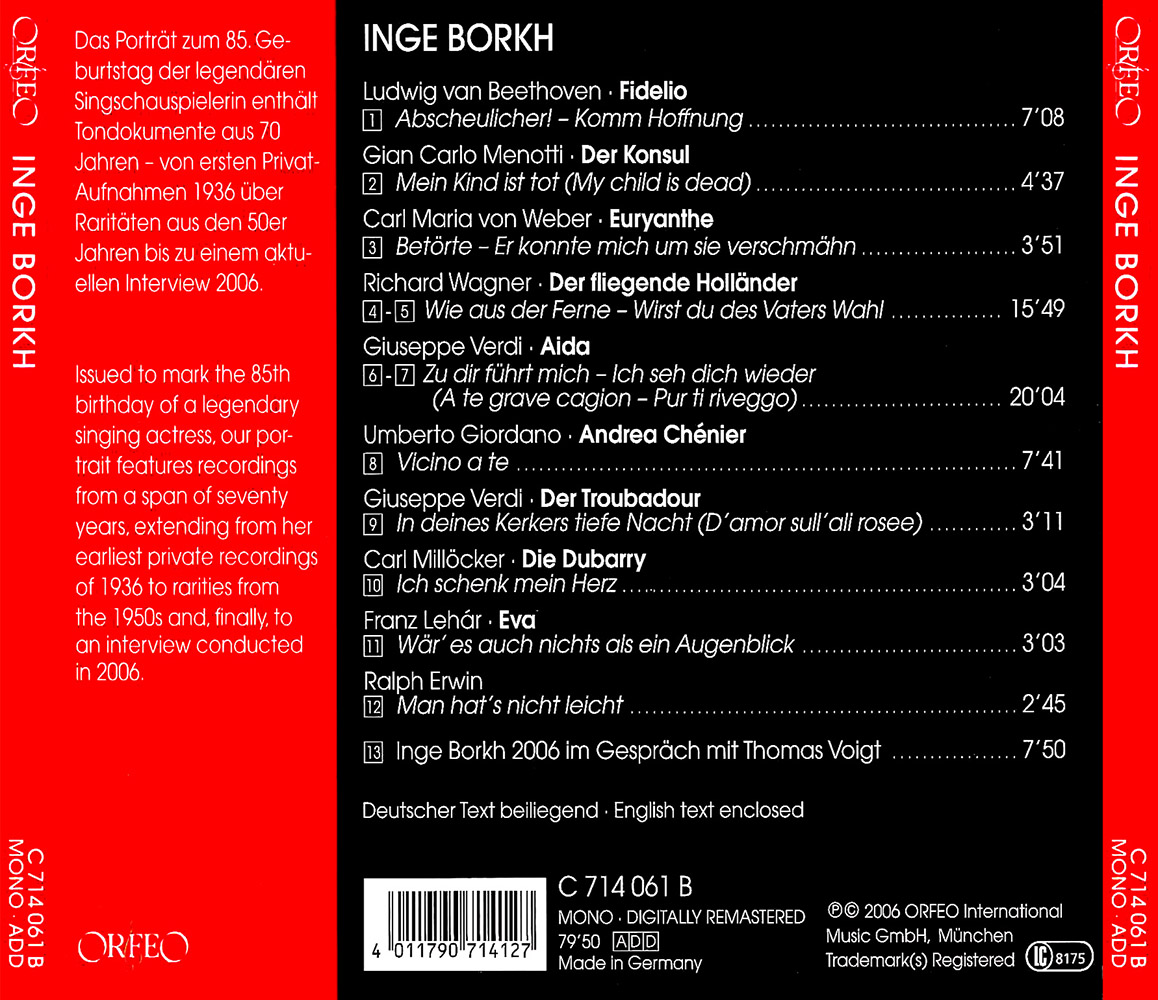Composer(s):
Conductor(s):
Orchestra(s):
Artist(s):
Genre(s):
Film and TV Music; Interview; Opera; Operetta
Period(s):
20th Century; Classical (1750-1830); Romantic
Label:
Orfeo
Catalogue No:
C714061B
Barcode:
4011790714127
Release Date:
01/2006
Available Format(s):
CD
Inge Borkh
Beethoven, Ludwig van
Fidelio, Op. 72, Act I: Abscheulicher! - Komm, Hoffnung
Menotti, Gian Carlo
The Consul: Mein Kind ist tot (My child is dead) (Sung in German)
Weber, Carl Maria von
Euryanthe, J. 291, Act I: Bethorte! Die an meine Liebe glaubt
Wagner, Richard
Der fliegende Holländer (The Flying Dutchman) (excerpts)
Verdi, Giuseppe
Aida (Sung in German) (excerpts)
Giordano, Umberto
Andrea Chenier, Act IV: Vicino a te s'acqueta
Verdi, Giuseppe
Il trovatore, Act IV: In deines Kerkers tiefe Nacht (Sung in German)
Millöcker, Carl
Die Dubarry: Ich schenk mein Herz
Mackeben, Theo
Lehár, Franz
Eva (Das Fabriksmadel), Act I: War es auch nichts als ein augenblick
Erwin, Ralph
So ein Madel vergisst man nicht: Man hat's nicht leicht
Not Applicable, na
Inge Borkh interview with Thomas Voigt
Total Playing Time: 01:19:06

















